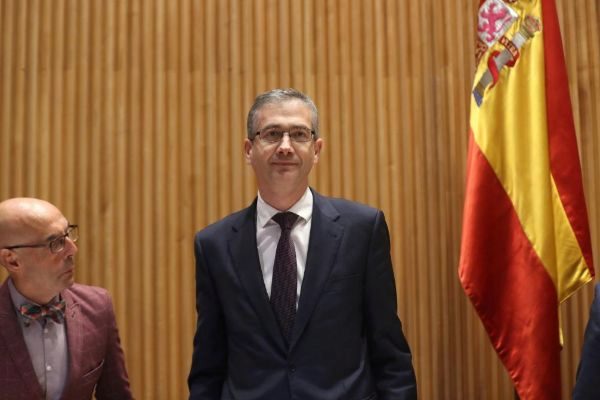The governor of the Bank of Spain, Pablo Hernández de Cos , on Saturday asked the euro zone countries to reactivate their public investment after years of containment to boost economic activity and drive away the ghosts of the recession that are already flying over Europe.
Not to mention Germany, De Cos has raised the pressure on "those countries that have more fiscal space and that could provide greater budgetary stimulus to their economies, especially given that these countries have been particularly affected by the recent slowdown as a consequence of its strong exposure to international trade flows. "
The State led by Angela Merkel has been heavily penalized for the increase in commercial tensions and the US threat to tax European vehicle imports. In addition, the German automobile industry is immersed in a process of profound transformation to reduce its polluting emissions and the brake on its production and sales has been one of the triggers that has led the country to suffer a negative economic growth in the second quarter of the year.
The governor of the Bank of Spain and member of the governing board of the European Central Bank (ECB) explained in his closing of the summer courses of La Granda, in Asturias, that the pull of the German locomotive could have a positive effect on the rest of the European economies through its commercial links, "thus giving rise to overflow effects or positive spillovers for the whole area". "However, in the current fiscal framework of the economic and monetary union, these decisions are the responsibility of national governments, which hinders their adoption," he lamented before insisting on the idea of deepening the fiscal union.
"The growth of public investment continues to be very moderate, after the cuts experienced during the crisis, which contrasts with the important challenges that we have to face in the coming years in various fields , such as digital transformation, energy transition , population aging and, in general, the necessary adaptation of our productive fabric to a more complex and demanding global environment, "he said.
De Cos recalled that at its last meeting the European Central Bank (ECB) has already advanced the possibility of deepening its lax monetary policy with a new reduction in interest rates and the revival of liquidity injection into the economy with the revival of a asset purchase program. However, he insisted, his performance is limited as he is already at the "effective rate limit".
"It should be borne in mind that, as long as interest rates remain longer at levels close to their lower effective limit, central banks will have less space to cut rates in response to future crises and should resort more frequently to less conventional measures to expand their balance sheets, "he concluded.
According to the criteria of The Trust Project
Know more- Europe
- Bank of Spain
- European Central Bank
- Asturias
- Angela Merkel
- Germany
- TV
EconomyMore 'doping' from Frankfurt against the economic brake in Europe
Economy Inflation in the euro zone has plummeted to its lowest level since 2016 and raises pressure on the ECB
Macroeconomics The fall of the pound shakes Johnson's hard Brexit

